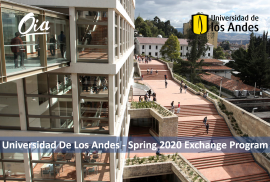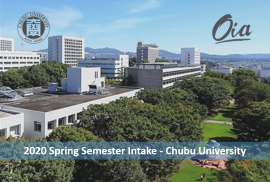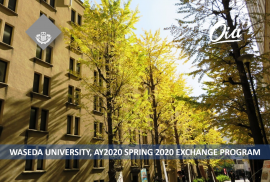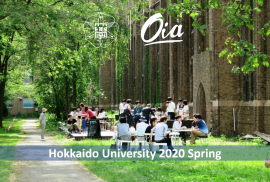Greetings from Chonnam National University, Korea.
Arsip:
Exchange Program
Greetings from Bogotá!
Greetings from Chubu University!
Greetings from Meiji University, Tokyo Japan.
The application for the spring 2020 exchange program (April 2020-) is now open.
This is the information on the spring 2020 academic year exchange student program.
More information please visit here
The following schools offer courses in English. Students do not need to have Japanese language proficiency while at Meiji.
Undergraduate
-School of Political Science and Economics
-School of Business Administration
-School of Global Japanese Studies
Graduate
-Graduate School of Governance Studies
-Graduate School of Business Administration
-Graduate School of Global Business
-Graduate School of Global Governance
-Graduate School of Science and Technology, International Program in Architecture and Urban Design
Duration of study abroad at Meiji and application period
(1) 2020 Spring semester (April 2020- )
*Duration of study abroad at Meiji (excluding arrival dates, orientations). Subject to change.
April 2020 – July 2020 (one semester only)
April 2020 – February 2021 (one year)
Document Requirements
Application form
Scholarship Available
Greeting from NCU Taiwan!
Greetings from Ritsumeikan University, Japan!
Scholarship offered
Tuition Fee Waived
Warm greetings from Sophia University, Japan!
We are pleased to announce that we are open for the Spring Program Semester 2020.











Recent Comments